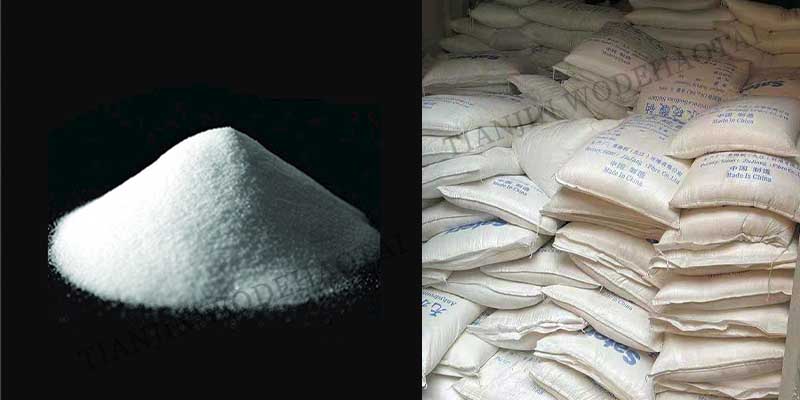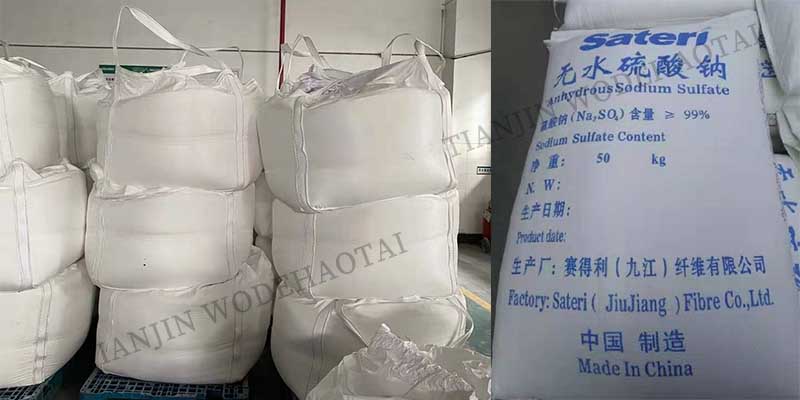CAS No.:7757-82-6
Purity:99%
MF:Na2SO4
Sodium sulphate anhydrous, commonly referred to as anhydrous sodium sulfate or Glauber's salt, is an inorganic compound with the chemical formula Na2SO4. It is a white, odorless, and crystalline solid that is highly soluble in water. Unlike its hydrated counterpart, sodium sulphate decahydrate (Na2SO4·10H2O), anhydrous sodium sulfate does not contain water molecules in its structure.
Chemical Composition: Sodium sulphate anhydrous is composed of sodium ions (Na+) and sulfate ions (SO4^2-), with a molar mass of approximately 142.04 grams per mole.
Physical Properties:
Appearance: White, crystalline solid.
Melting Point: Approximately 884 degrees Celsius (1,623 degrees Fahrenheit).
Density: Around 2.664 grams per cubic centimeter.
Solubility: Highly soluble in water, with a solubility of approximately 42 grams per 100 milliliters of water at 20 degrees Celsius (68 degrees Fahrenheit).
Production: Anhydrous sodium sulfate is typically produced as a byproduct of various industrial processes, such as the reaction between sulfuric acid (H2SO4) and sodium chloride (NaCl) in the Mannheim process or as a result of evaporating natural brine solutions containing sodium sulfate.
Applications:
Chemical Manufacturing: Anhydrous sodium sulfate is used as a raw material in the production of various chemicals, including detergents, glass, textiles, and paper.
Drying Agent: It serves as a desiccant or drying agent in laboratories and industrial processes to remove moisture from organic solvents, gases, and other substances.
Textile Industry: Anhydrous sodium sulfate is employed in the textile industry during the dyeing process to improve dye penetration and fixation on fabrics.
Paper Industry: It is added to pulp and paper manufacturing processes to improve paper strength, quality, and sizing.
Glass Industry: Anhydrous sodium sulfate is used in glass manufacturing to lower the melting point of silica and improve glass quality.
In summary, anhydrous sodium sulfate is a versatile compound with diverse industrial applications across various sectors. Its solubility, chemical stability, and drying properties make it a valuable ingredient in chemical manufacturing, textiles, papermaking, and other industries.

